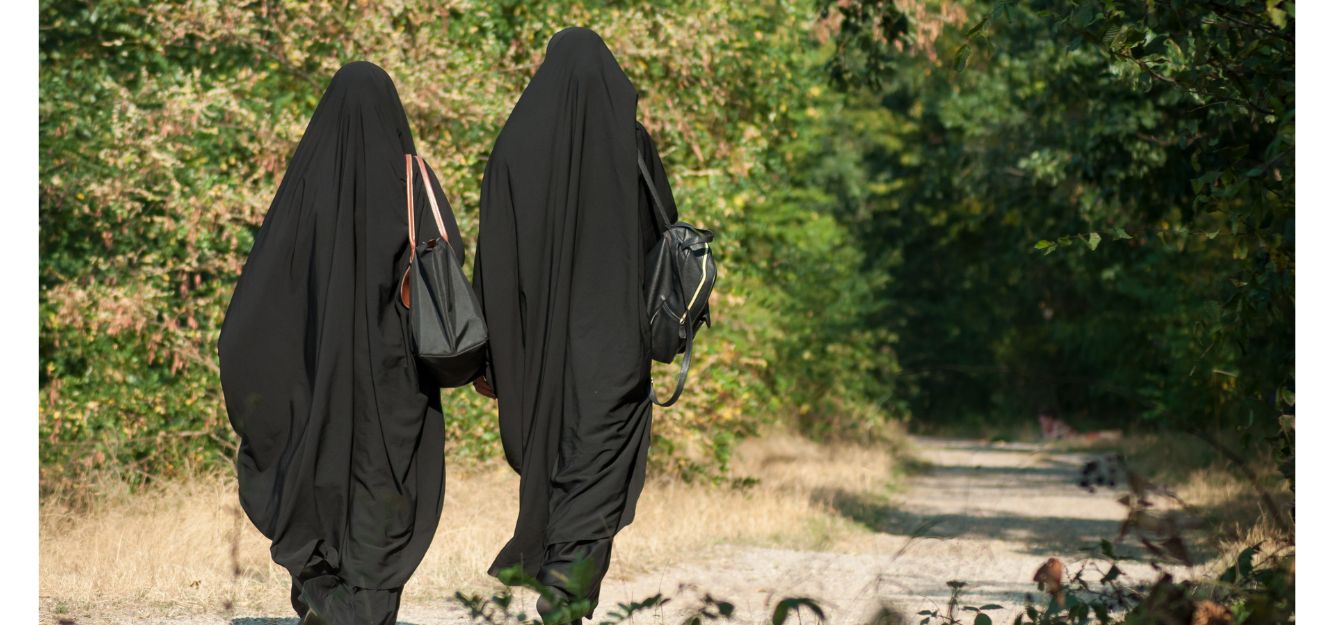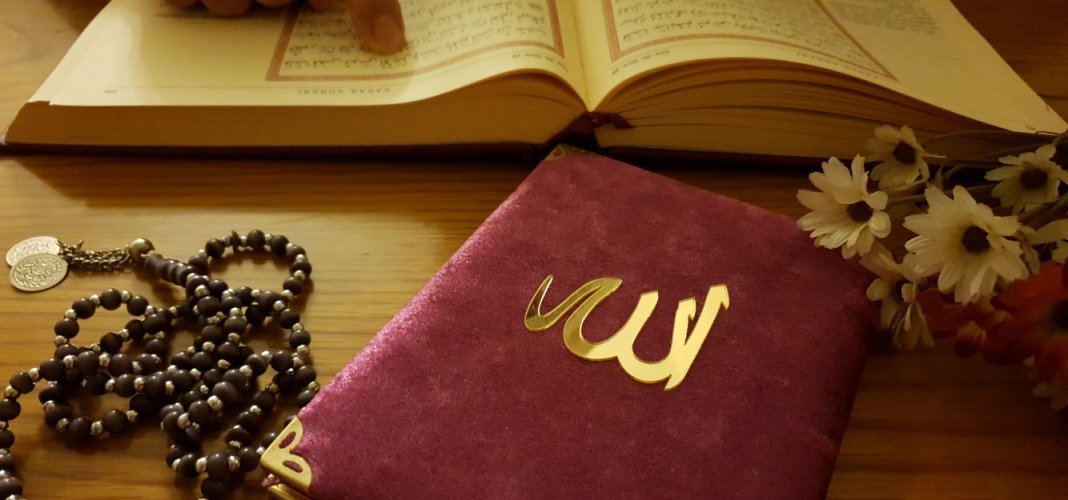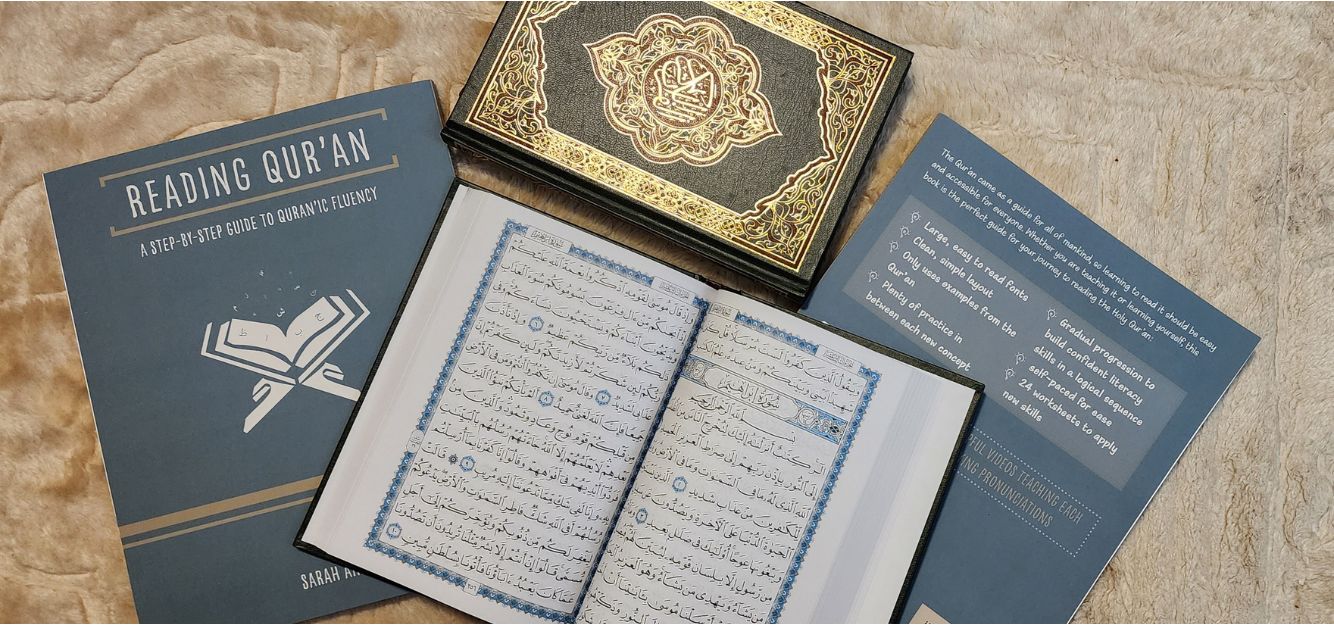While Aisha warned others about hijab, she too paid strict attention to it. As a wife of the Prophet (peace be upon him), she was a mother to other Muslims. In spite of this, she behaved carefully and kept a distance between herself andd men who were not close relatives.
She covered even around blind men. One day, Ishaq, a leader of the Tabiun, came and Aisha removed herself to the other side of the curtain. Ishaq, being blind, found her behavior strange and said:
"Are you covering in order to protect yourself from me? But I am not able to see you."
Aisha responded:
"It may be true that you are not able to see me, but I can see you."
Aisha felt uncomfortable even when her wet nurse's husband came inside, though he was considered an uncle near whom she did not have to wear hijab. To those who found this odd, she said:
"His wife was the one who breast-fed me, not him."
Perhaps the decision on this issue had not been made clear yet, so Aisha erring on the side of caution. When the Messenger of Allah came and she asked him, he told her:
"He is your uncle. Allow him into your place."
it was said by Ibn Abbas that Aisha used to cover even when the Prophet's grandsons, Hasan and Husayn, visited her home. Hasan and Husayn, because of her caution, did not always go near the wives of the Messenger and behaved more carefully as well.
Even while worshipping, she did not mix with the crowd and circled the Ka'ba at more serene times. Once when Aisha was circling the Ka'ba, a woman asked her to go together to the Hajar al-Aswad (the black stone):
"O mother of the believers, why do we not kiss or touch the Hajar al-Aswad?"
Aisha told the woman to stay away from her and expressed that it is improper for a woman to move into such a crowd.
Knowing her cautious ways people often tried to make her more comfortable while she was circling the ka'ba, by clearing the area of men. The circling area was prepared for Aisha in this way. She even covered her face while circling the Ka'ba, never wanting anyone to see her face.
She was meticulous during a visit to the cemetery. After Umar was martyred and buried, Aisha conducted her visits more carefully to the graves of the Messenger of Allah and her father Abu Bakr.
Her sensitivity was even reflected in her lectures. Aisha allowed everyone to come and benefit from her knowledge and had students from every region. Her foremost students were her nephews and her relatives. Though it was easier for them to visit her home, she kept a curtain between herself and distant relatives and strangers, and taught her lessons from the other side of that curtain. If she had to interfere, Aisha corrected mistakes by signaling with her hands. Her disciple Imam Masruq said:
"I used to hear the noise of her clapping from the other side of the curtain."
With care, Aisha constructed a beneficial environment for classes. She made sure the ones who always came to take lectures had been breast-fed by her closest relations so she could see them more for the sake of knowledge. She knew that the Messenger of Allah had given a similar permission to Abu Hudayfa's wife Sahla bint Suhayl, and although Salim had been an adult, she had given milk to him so they became close relatives.
If it was necessary, she taught through practice what she knew to her students who had status of her relative. One of her close relatives had a servant named Salim who wanted to learn how to perform ablution. She taught him how the Messenger of Allah had by performing ablution herself. Since Salim was the slave of one of her close relatives, she also accepted him like a relative.
After some time passed, the same man came to Aisha again and told her:
"O mother of the believers, please pray for me."
Aisha asked why. Wanting to share his happiness with her, he said:
"Allah Almighty bestowed me freedom."
She responded:
"May Allah give you blessings."
As soon as she had said this short prayer, Aisha hid herself behind the curtain. From then on, he did not have the status of a close relative, and so she talked with Salim from the other side of the curtain.
Guiding Others And Conveying The Message
Conveying the message and guiding others truly constituted the center of Aisha's life after the days of Allah's Messenger; she intervened in mistakes she saw to explain how an issue was resolved during his lifetime. Aisha enjoined the good and forbade the evil in every circumstance; she did whatever she could to guide her people. The motive behind her efforts was her serious concern for putting the teaching of the Quran and the Sunnah into practice.
Aisha once saw a woman while she was walking between Safa and Marwa wearing a hijab painted with pictures. Aisha warned her:
"Get rid of these pictures on your clothing. The Messenger of Allah got angry when saw clothing like that."
Aisha insisted on sharing the knowledge that she had and felt anxious that something would remain restricted only to her. Among them were things that felt ashamed to share because of her modesty, so Aisha told wives to share them with their husbands. One day she said:
"Since I feel ashamed to say this to them, tell your husbands that they should use water to clean themselves after using the restroom. This is what the Messenger of Allah did."
She warned girls, even little ones, who wore jewelry on their hands and feet when they visited her, explaining that excessive adornment would invite Satan and their house would be deprives of angels.
Whenever she saw a fault, she wanted it to be corrected. One day, she saw her brother Abdurrahman performing ablution in a hurry to attend the funeral prayer of Sa'd ibn Abi Waqqas and warned him:
"Abdurrahman, be more careful washing your feet while performing ablution. I heard the Messenger of Allah say: 'what a pity for heels (burning) in fire!'"
Referenced From:
Aisha | The Wife, the Companion, the Scholar
Written By: Resit Haylamaz
Published by: Tughra Books
Pages: 78-81





Leave a comment
This site is protected by hCaptcha and the hCaptcha Privacy Policy and Terms of Service apply.